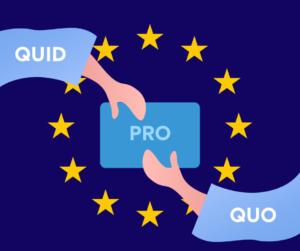Headquarters: Svetog Nauma 7, 11000
Office address: Đorđa Vajferta 13, 11000
Phone:: +381 11 4529 323

Slowly but surely, citizens and the economy of the European Union are beginning to feel the direct and negative repercussions of an increasingly present disregard for breaches of rule of law across member states. The concept of rule of law (which includes elements such as the principle of legality, legal certainty, separation of powers, the prohibition of arbitrary executive power, and the presence of a functional judicial system) is therefore no longer abstract and reserved for discussions within the expert community. In fact, the greatest and most palpable of the EU’s achievements – the single market, the Schengen Zone, and the Eurozone – cannot function if the stability of rule of law is endangered in any member state. At the same time, the existing EU protection mechanisms for the rule of law have so far been redundant. This causes growing frustration within the EU, to the point that some intellectuals openly condition their support for the EU with results in this area. The importance of rule of law, therefore, takes on a practical dimension alongside the normative.
From the standpoint of an advocate for the European project in Serbia also bitter about the hypocritical attitude of key EU actors towards political elites in Serbia and the Western Balkans, I perceive such a development as an opportunity to create a pan-European alliance for defending rule of law, bearing in mind that neither the EU’s future nor our region’s accession process, have much hope without brave and ambitious steps in this area.
Simply put, future enlargements will not happen, as long as a functional system for protecting rule of law is not established within the EU. Many member states will not permit new entrants if the only somewhat effective system of conditionality exists during accession negotiations (i.e. prior to membership). If there is no concrete progress in preventing breaches to rule of law, either on the EU’s side or by the candidate countries, the revised approach to the accession process of the Western Balkans (the “new methodology”) will also be limited in its application. How, for example, would one permit the phased accession of candidates to sectoral policies of the EU, such as within the single market cluster, knowing that the functioning of the single market is dependent on the proper application of rule of law?
To prepare for the difficult times ahead, the citizens of Europe need new guiding ideas and goals, which would give them a purpose and reawaken their spirits. A pan-European alliance for defending rule of law would have its stronghold in the citizens, as well as of political and economic actors of member states and EU aspirants, brought together both by normative ideals and pragmatic interests. Aware of the risks to the existing level of economic integration and legal security, or simply out of a wish to live in a better-organised society, this bloc has immense potential to gather a wide array of supporters and, with adequate political representation, to become a challenger to the status quo.
Beyond growing public endorsement, this alliance would be armed with existing initiatives and policy proposals at the EU level, which promise to start a revolution of sorts within the existing legal framework. Other than the infringement procedure which is launched by the European Commission (EC), and the preliminary rulings by the European Court of Justice, which could both be used more confidently in the future, a proposal for a Regulation on the protection of the Union’s budget in cases of generalised deficiencies as regards the rule of law in the member states, also deserves substantial attention. The goal of this regulation is to condition access to EU financial resources on adherence to rule of law, giving unprecedented authority to the European Commission. Among others, this regulation would turn the EC into a sort of Venice Commission for the EU budget, authorised to implement measures in cases of limited rule of law, in close cooperation with the European Public Prosecution Office and the European Anti-Fraud Office. The Council of the EU would also reach decisions by reverse qualified majority voting, intended to make it difficult for member states to block EC proposals, thus speeding up the decision-making process.
Eventually, the pan-European alliance would pressure political representatives and foster political will, in order to push forward various measures for the protection of rule of law within the framework of the EU as well as in the context of the Western Balkans’ accession process. Of course, this alliance would necessarily have to introduce sensitive issues to the public along the way, such as Europe’s demographic picture and policies, and (ir)regular migrations, which potential allies and supporters within the EU and the Western Balkans are perhaps not yet ready to face. Nevertheless, is it worth sacrificing the greatest achievements of the EU for the sake of defending the “gates of Europe” and its purported “Christian identity”, by mutually tolerating open breaches of rule of law? It most certainly is not, and now is the right moment to stop running from these issues out of a fear of populism and to instead shake up the status quo with a fresh perspective.